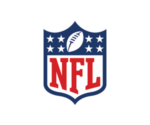 Two very good teams met in Minneapolis on Sunday afternoon, and the outcome was in doubt until the final minutes. Both teams’ defences held up very well, and both teams’ offences were lacking, so the outcome depended on penalties and luck. The officiating squad didn’t throw a lot of penalty flags (including some that were blatant, yet un-noticed), so the game came down to luck. The Vikings were in luck, but it was all bad.
Two very good teams met in Minneapolis on Sunday afternoon, and the outcome was in doubt until the final minutes. Both teams’ defences held up very well, and both teams’ offences were lacking, so the outcome depended on penalties and luck. The officiating squad didn’t throw a lot of penalty flags (including some that were blatant, yet un-noticed), so the game came down to luck. The Vikings were in luck, but it was all bad.
Sam Bradford’s knee is still not back to normal, so Case Keenum got the start again for the third straight game. Keenum is a very good backup quarterback, but he tends to be a one-read player so he sometimes misses big opportunities because he’s watching the receiver he’s already decided to go to and doesn’t see a better chance elsewhere on the field. Against Tampa Bay, that didn’t matter, but against Pittsburgh and on Sunday against Detroit, it mattered a lot.
The Vikings defence played (mostly) lights-out against the Lions. Danielle Hunter started the game off with a bang, notching his first sack of the season on the opening play, and he got another sack during the game. Everson Griffin chipped in with a sack of his own and two tackles for loss. Linval Joseph also got a sack, and linebacker Eric Kendricks got two. On the other hand, it seemed like everyone in purple had a chance for an interception but none of them could hang on to the ball, and there were periods in the game where Lions ball carriers appeared to be coated in Teflon and the Vikings just couldn’t wrap them up on the tackle.
Injuries are always at least a background concern for NFL teams, and the Lions came in to Minneapolis with a long list of injured players, but the worst injury of the day was on a non-contact run by Vikings rookie sensation Dalvin Cook, who may have torn his ACL while trying to make a cut (he fumbled the ball at that point, but I’m certainly not going to hold it against him under the circumstances). He’ll have an MRI on Monday which will clarify the extent of his injury. Sadly, Eric Thompson’s tweet is still as appropriate as ever:
A friendly reminder in Venn diagram form. #Vikings pic.twitter.com/ooDG1Wxe7V
— Eric Thompson (@eric_j_thompson) September 10, 2015
Update: Yes, coach Zimmer confirms that it’s an ACL tear and Cook is going to be put on the injured reserve, ending his season.




